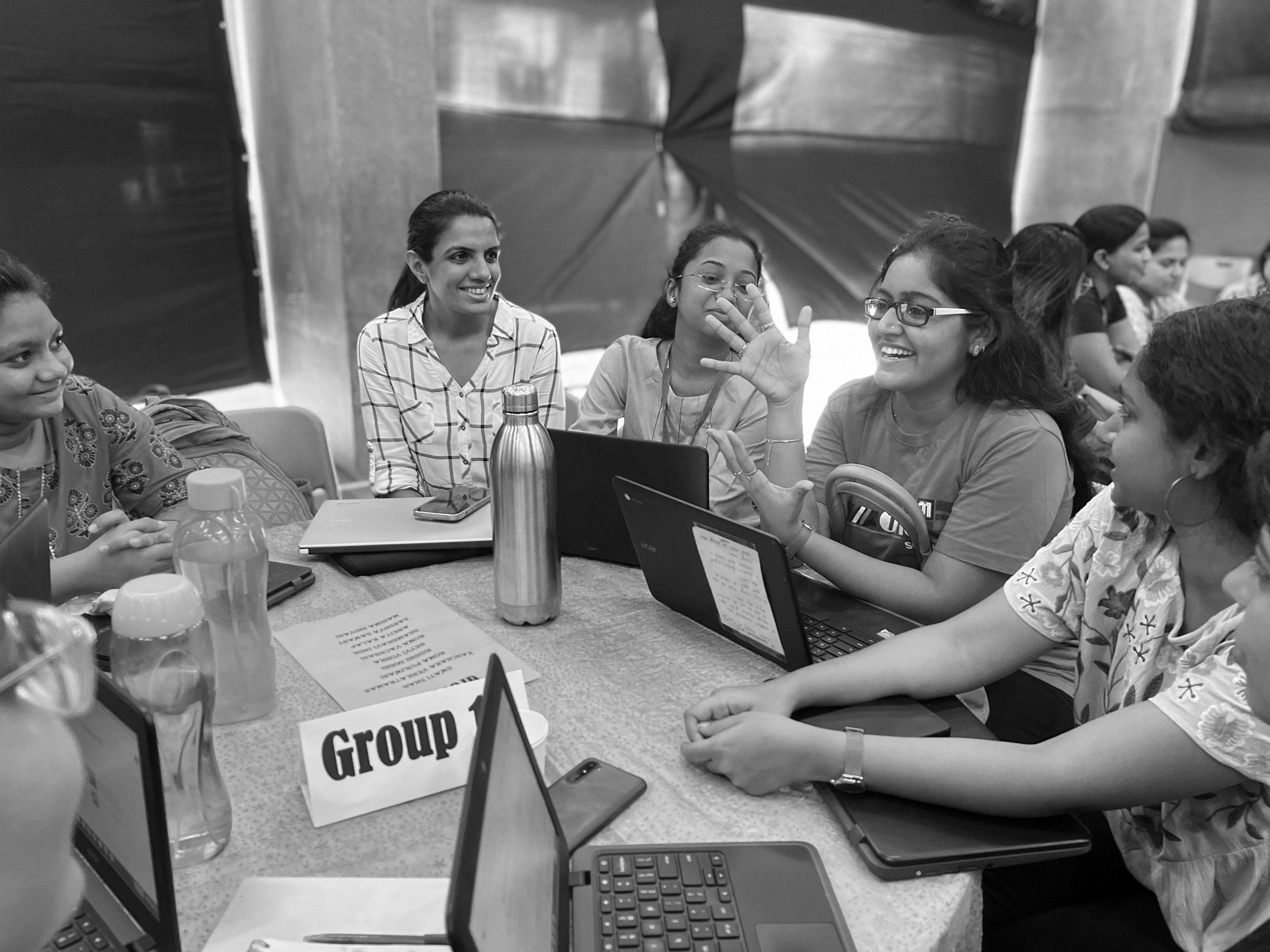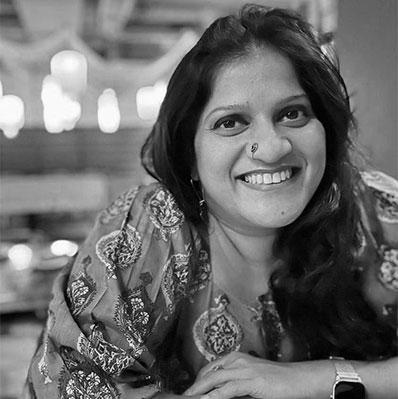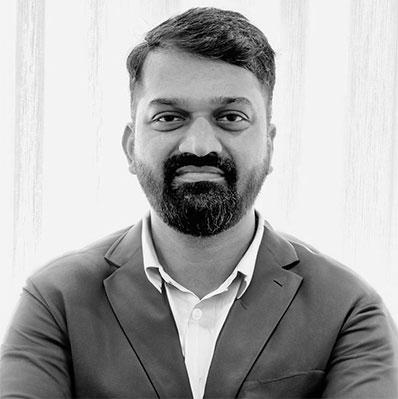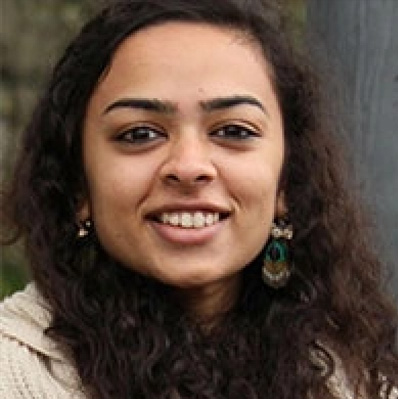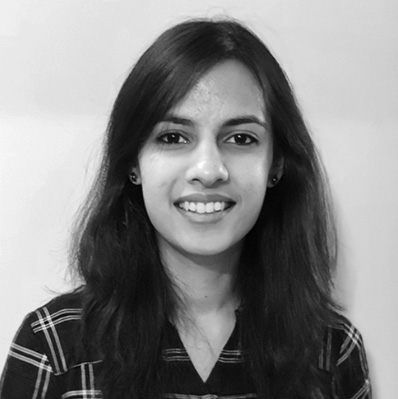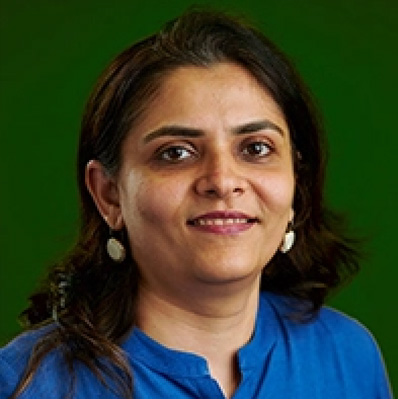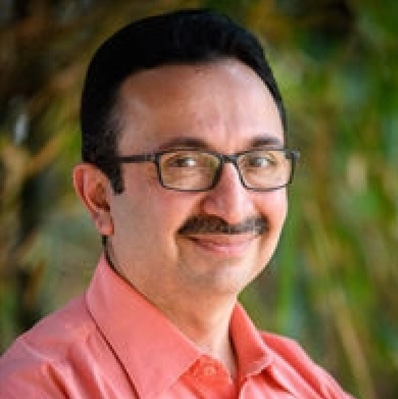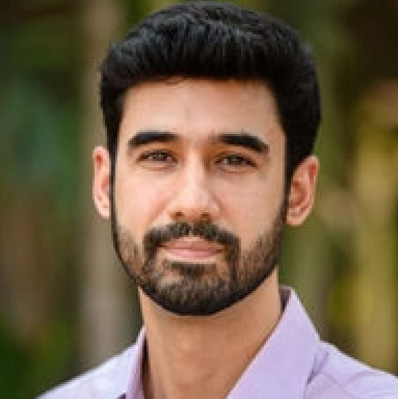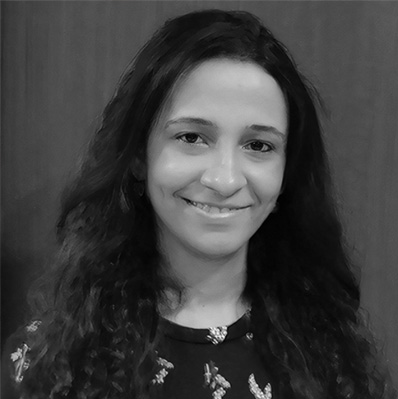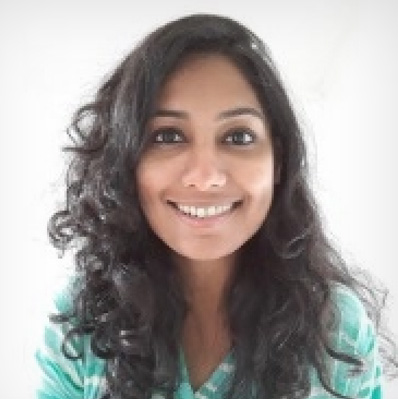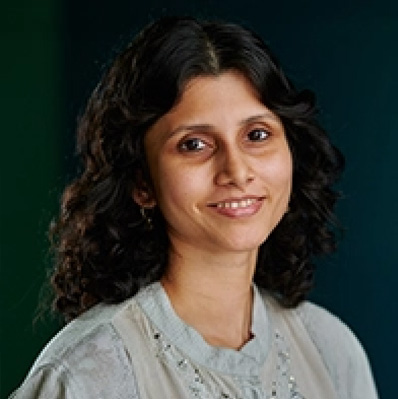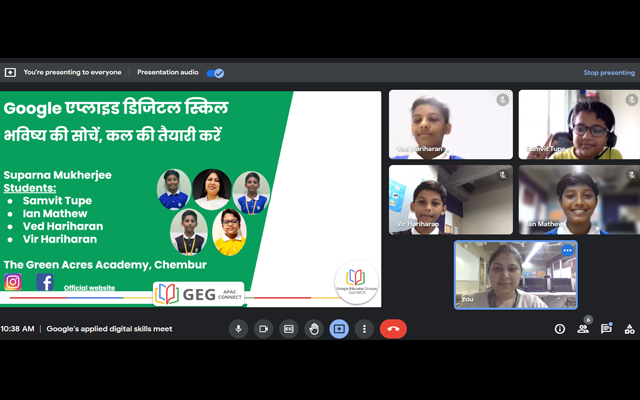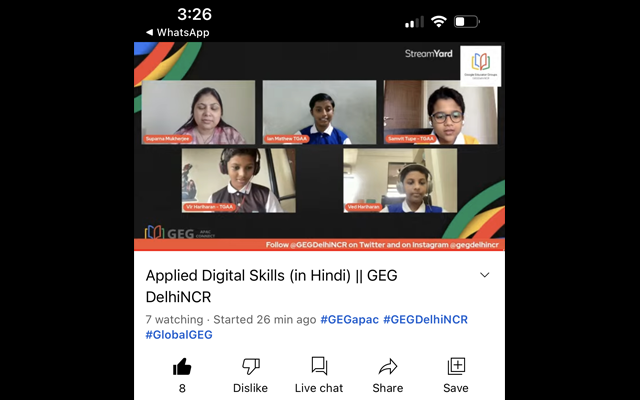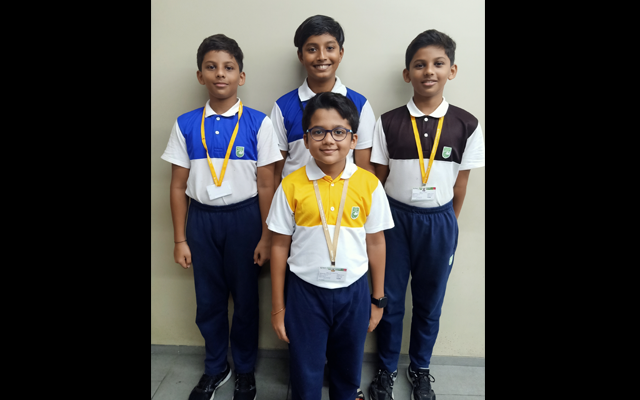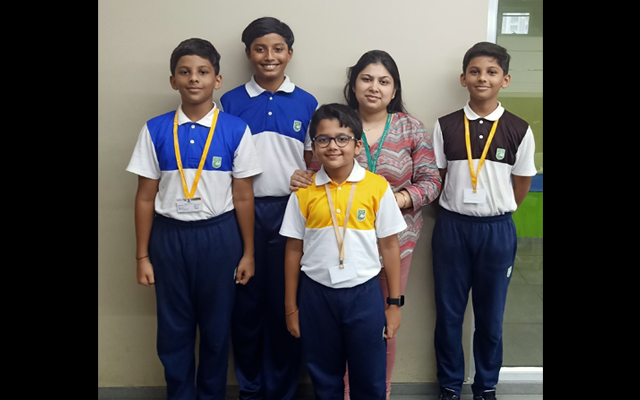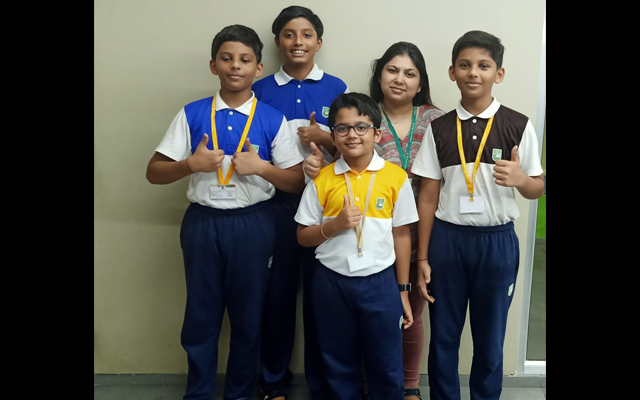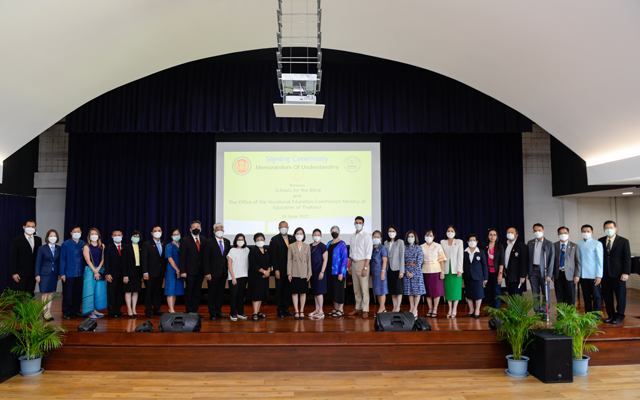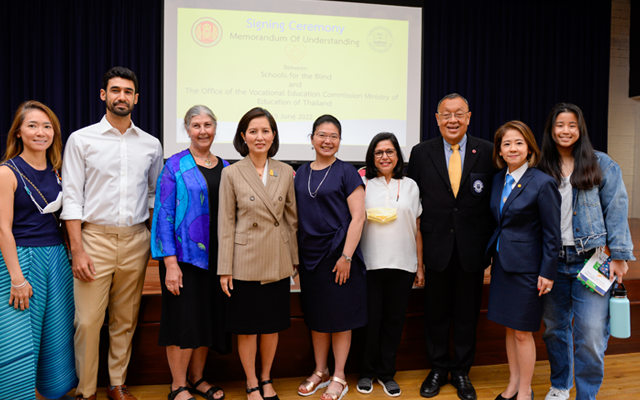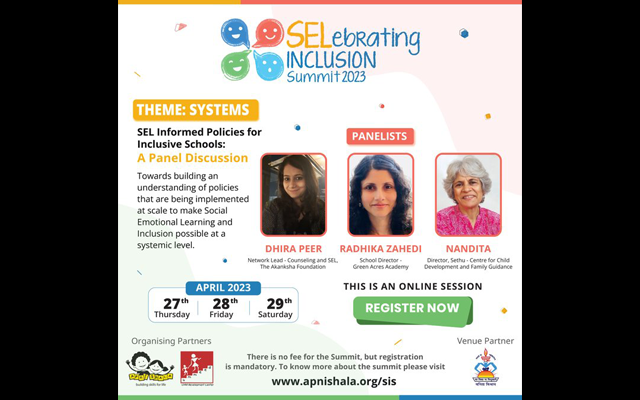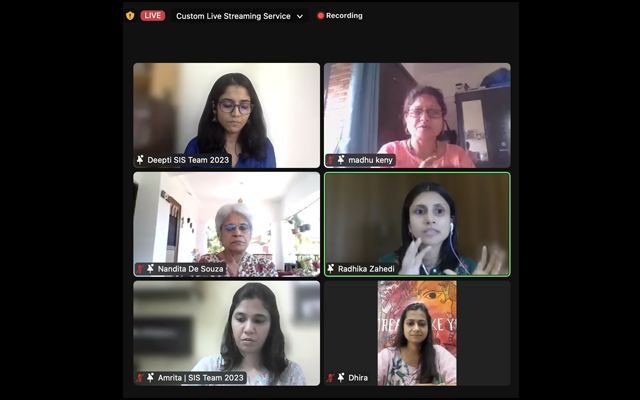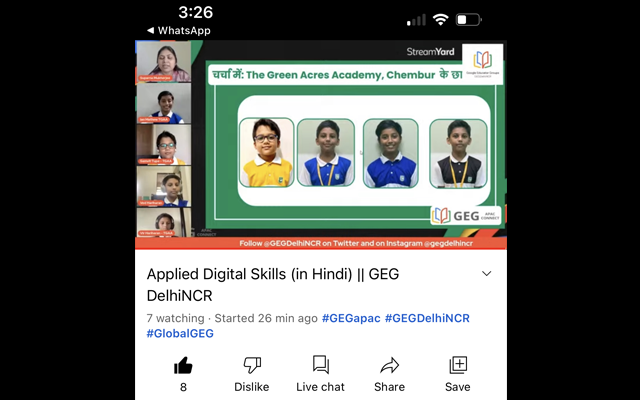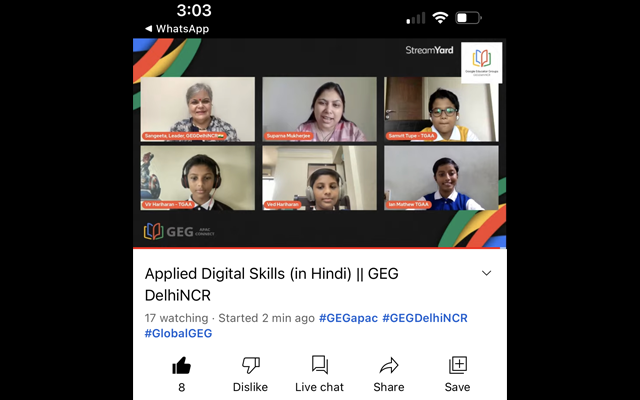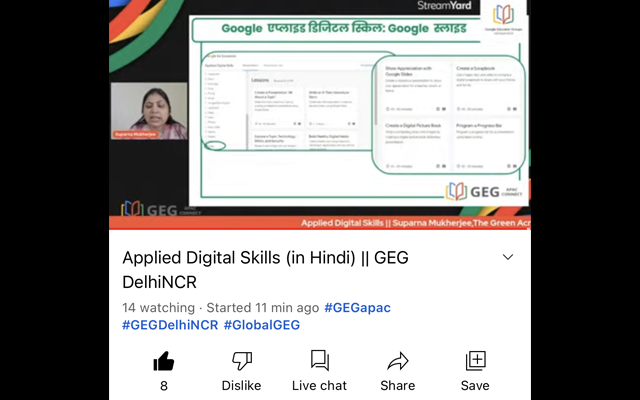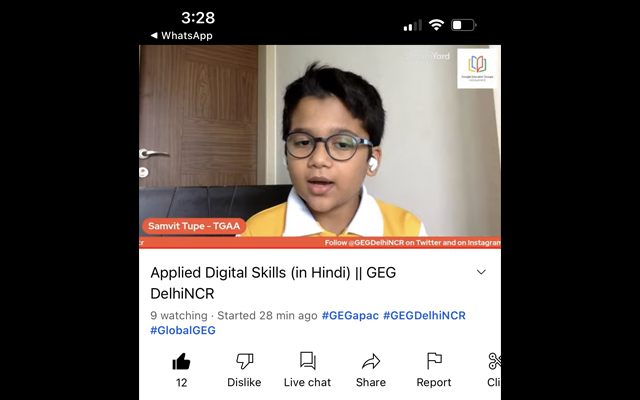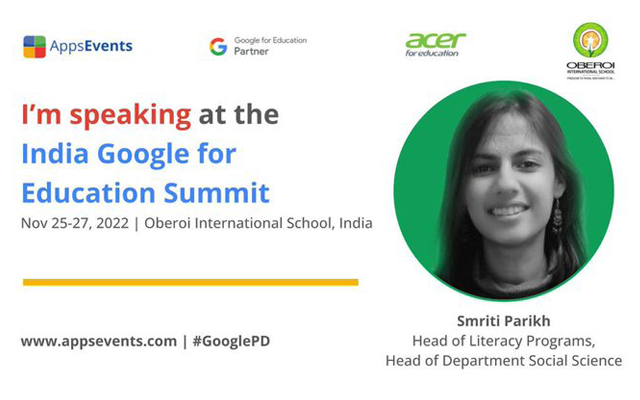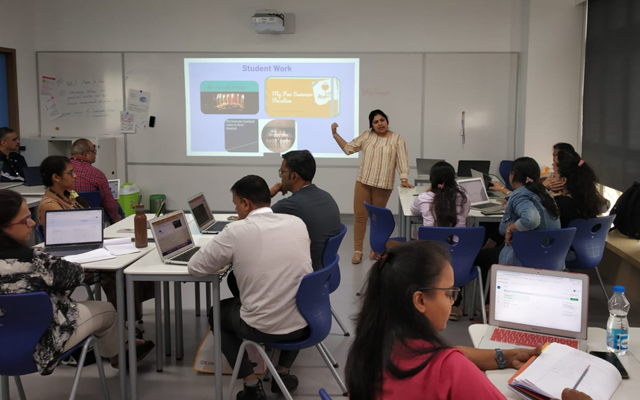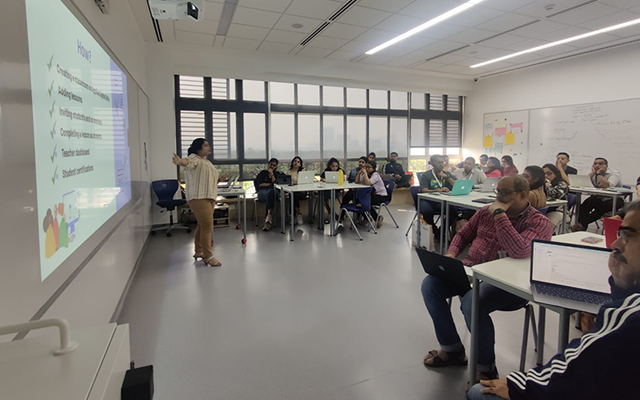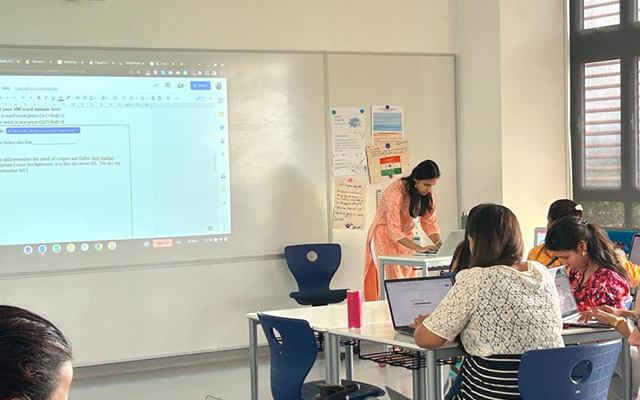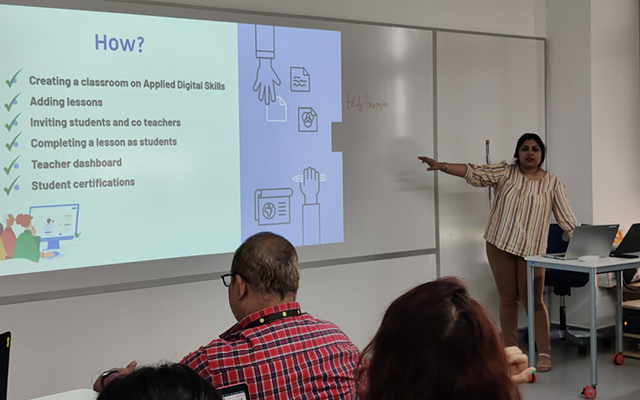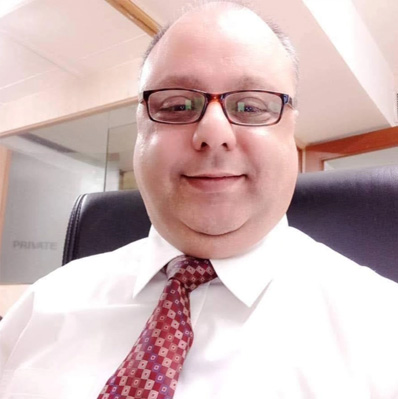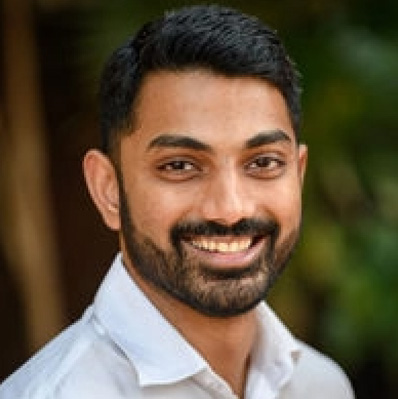As a Google Reference School, we serve as a learning site and extend invitations to other schools to learn from our practices. Since 2022, we have transitioned into a 1:1 device school, leveraging technology to benefit our students. Our focus is on building digital literacy, accessing information effectively and responsibly, utilizing 21st-century tools for learning, and fostering active student engagement in the learning process.
Recognizing that several schools are currently undertaking a similar journey, we believe that sharing our practical learning and insights can help them be effective in their own paths. To facilitate this knowledge exchange, we welcomed eight educators from Lighthouse Learning to learn from our experiences with digital transformation. Among the schools affiliated with Lighthouse are EuroKids International, Kangaroo Kids International (pre-school), Mother’s Pet Kindergarten, EuroSchool, Billabong High International School, Centre Point School, Heritage Xperiential Learning School, Heritage International Xperiential School, and Heritage International Xperiential School.
A half-day outreach session was organized, led by our Vice-President of Professional Development at CenTEL, who also serves as an instructional leader at TGAA, Chembur. This session included classroom observations to witness implementation in action, as well as consultations with our academic and IT team leaders who shared their insights and answered questions.
The observers spent their time in primary classrooms to gain a better understanding of how routines were established to ensure the safekeeping of devices. Across primary and secondary classrooms, the visiting school team also studied the use of 1:1 device integration for the purpose of engaging students in assessments for learning through the use of Kahoot and Peardeck extensions found on Google Workspace. This helped them see how students receive real-time feedback on student mastery and empowers them to course-correct during the course of study. In higher secondary classrooms, the students showcased the use of devices for collaboration and student-led learning as well as the responsible use of ChatGPT. They experienced students delivering instructional presentations and participating in Model United Nations, which required the students to conduct extensive guided research with their peers. Each of the classroom observations was followed by a detailed debrief around structures that led to successful use, teacher training that empowered the educators, and a culture of continuous improvement in the use of technology to elevate student learning.
Overall, it was a very positive exchange of learning and ideas!


